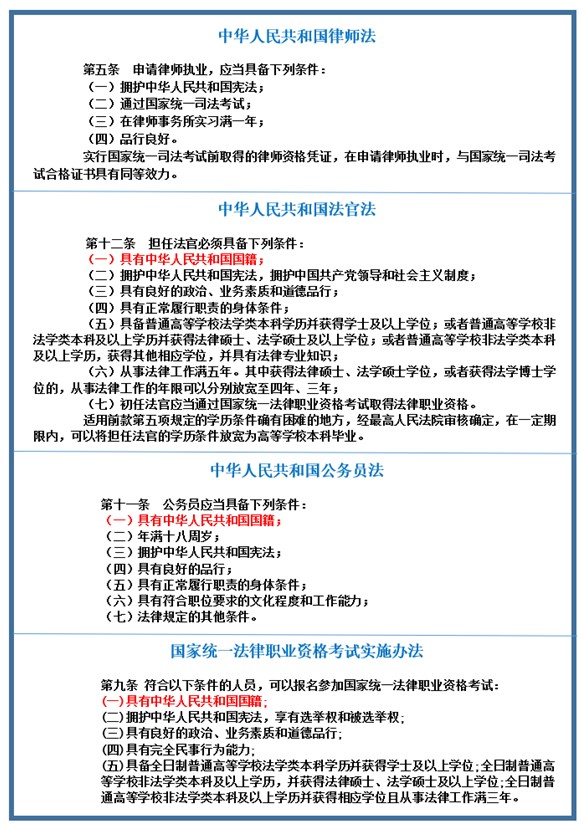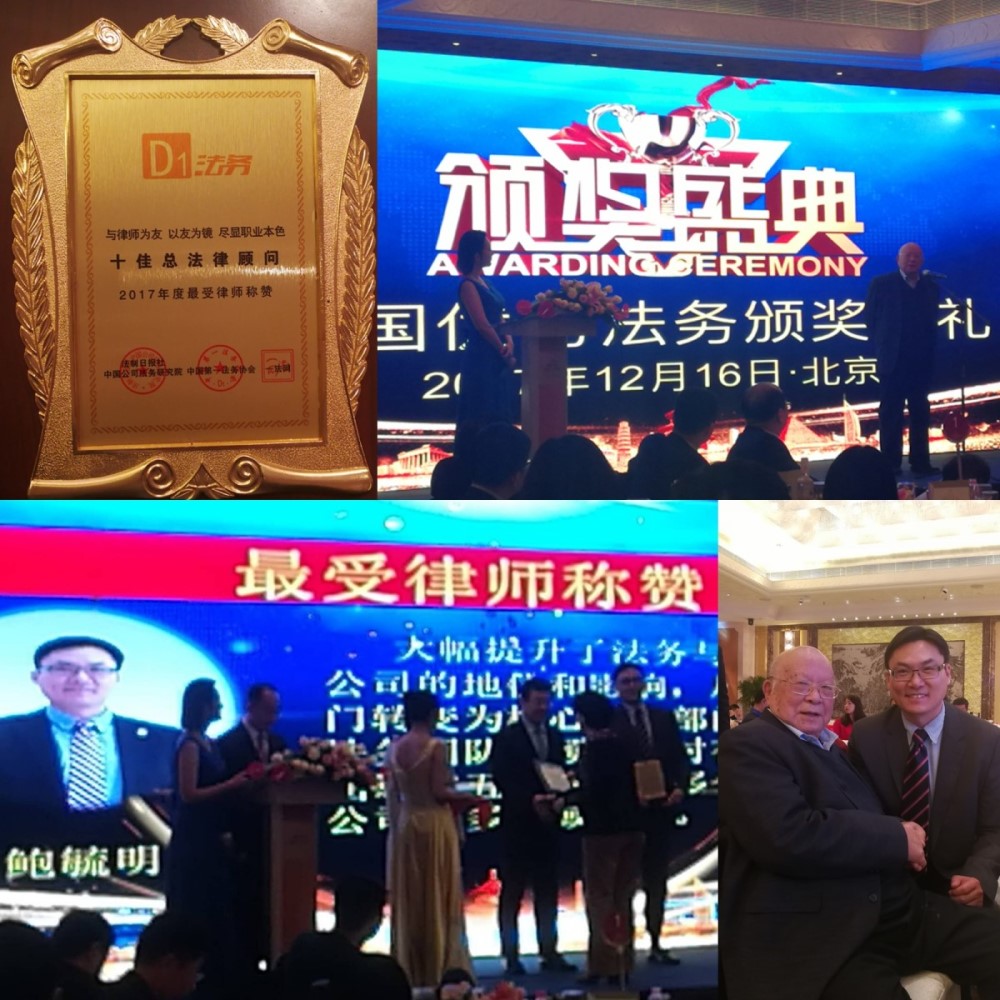 About Revocation of Mr. Bao's Chinese Law License
About Revocation of Mr. Bao's Chinese Law License
(1) Political/diplomatic reasons for finding a pretext to deport him
There are so many political and diplomatic reasons in behind of the deportation. Recently US citizens and companies have been facing more hatred and receiving more unjust treatment in China as the bilateral relationship between the two countries deteriorates. Mr. Bao was the victim of massive and torturous cyberbullying following a wrongful accusation, brutal defamation and overwhelming fake news. Although the top Chinese authority eventually cleared him after harsh and prolonged investigation as they found no sexual assault occurred, no minor involved, and no guardianship exists, nevertheless to relieve public sentiment over the heat of unleashed and distorted chaos, to overcome the rumor that he bribed all police officers and the taunt that Chinese government is bowing to Americans, and to hinder him from potentially filing dozens of lawsuits to uphold his rights in China, the Chinese government was driven to force him out of the country by finding an unrelated pretext – his law license.
(2) No citizenship requirement for maintaining law license in China
Similar to the US, China Lawyer Law doesn’t have a citizenship requirement at all for practicing law in China, which is in line with the legislation of most other countries and the WTO principle for opening legal market. In contrast, China Judge Law and China Public Servant Law both have citizenship requirement, which is also in line with the legislation of most other countries. The only citizenship requirement in relation to Chinese lawyer is found in a subordinate, administrative rule for taking bar exam in China. Mr. Bao was a Chinese citizen at the time he took and passed the Chinese bar exam in 1995, so he reasonably believed that his citizenship changed afterward should not be a legal hurdle for continued practice of law in China.
See Exhibit A: Chinese laws regarding citizenship. (Summarized in English: There is no citizenship requirement for being a practicing lawyer under China Lawyer Law, whilst there is citizenship requirement for being a judge or public servant under China Judge Law and China Public Servant Law; there is a citizenship requirement for taking bar exam in China under the Administrative Rules for Bar Exam.)
(3) His license was officially renewed after submission of US passport
In practice, prior to the occurrence of cyberbullying, the Beijing Judicial Bureau (“BJB”) actually renewed his law license after his submission of US passport, albeit he had particularly mentioned that he didn’t really care about whether to renew his law license at all as he didn’t need it and hadn’t used it for many years. Were the cyberbullying not occurred, his law license would possibly have been renewed again with his US passport submitted. As such, foreign citizenship was not a legal hurdle for maintaining law license in China whether by law or in practice prior to the cyberbullying.
See Exhibit B: Chat with the director in charge of the license renewal. (Summarized in English: The director asked him to fill a form for lawyers specialized in international work in March 2020, before the cyberbullying. Since he didn’t want to fill the form believing was wasn’t a practicing lawyer at law firm, the director confirmed that the BJB has accepted his US passport for last year’s license renewal, and commented that he was a brand of not only all Beijing lawyers but also all Chinese lawyers. The director also asked him to send his US passport again for that year’s license renewal, so he sent again and repeated that he don’t really care about whether to maintain the license at all, as he don’t need the license as an in-house counsel and haven’t used the license for many years.)
(4) In-house counsel doesn’t need a law license at all in China
Similar to the US, law license is not required for people working as in-house legal counsel in China. There are many American legal professionals working as in-house legal counsel in China. As a matter of fact, for many years Mr. Bao has been working in-house without the need for a law license in China. He hasn’t seen or used his Chinese license, has rarely contacted with the law firm, nor served any external clients during this period of time. As such, he has never engaged in unlawful practice of law.
See Exhibit C: Judgment search result. (Summarized in English: this is the centralized official system operated by China Supreme Court for online search of the judgements awarded by all Chinese courts. No record can be found after entering his name as the representing attorney, which is clear evidence that he hasn’t represented any clients before any Chinese courts as indicated in this official system.)
(5) He didn’t provide falsified documents for maintaining Chinese license
The two allegedly falsified documents presented by the BJB, namely the 2018 and the 2019 license renewal application forms, are neither known to him nor signed by him. He has no reason to falsify it as he reasonably believed that citizenship shouldn’t be a requirement for practicing law in China, and he doesn’t really need the law license at all as an in-house counsel for many years. On the contrary, being a nationally renowned in-house counsel, multiple award winner and frequent public speaker, there are sufficient public information and official record indicating he is a foreign citizen and is working in-house. Since he has shouted to all over the world about his foreign citizenship and in-house position, it makes no sense for him to conceal or falsify it to the BJB which should have known it from public sources.
See Exhibit D: Public popularity of his foreign citizenship and in-house position. (Summarized in English: Public announcement by ZTE when he took the critical role over its worldwide spotlight crisis of US sanction, which reflects his foreign citizenship (legal name in English, and status of certified foreign expert) and his in-house position (VP and Chief Legal Officer of Jereh Group); speaking on behalf of winners in the awarding ceremonies of China’s Top Ten Chief Legal Officers and China’s Top Ten General Counsels, with his in-house position conspicuously displayed in the background.)
(6) His law license had expired prior to revocation
More interestingly, the BJB revoked an expired license as Mr. Bao's license wasn’t renewed at all in the year of 2020 due to occurrence of the cyberbullying, so it had expired prior to the revocation. Usually, revocation of a license is only applicable to a license that is valid at the time of revocation.
(7) Penalty should be waived for self-correction before deadline
Since similar practice was not unusual in China, the BJB issued such a policy that those who have corrected such “violations” by self on or before September 10, 2020 will not be subject to penalty. Mr. Bao did correct all such “violations”, if any, as early as in April 2020, as he resigned from all positions and didn’t renew his license due to occurrence of the cyberbullying. Nevertheless, he still received the strictest penalty while no one else was penalized, that is, he is the only one who was punished for this kind of practice although such practice was commonly seen in China.
See Exhibit E: BJB Policy of waiving penalty by self-correction. (Summarized in English: This is the notice by BJB to all law firms deploying self-checking on the issues of part time job and foreign citizenship, and announcing penalty waiver by self-correction.)
(8) Bad influence was caused by wrongful accusation not the practice
A reason why the BJB imposed the strictest penalty on Mr. Bao is his “violation” caused bad social influence. However, since such kind of practice was not unusual in China before the cyberbullying, such practice itself won’t have a social influence of this magnitude. Actually, the bad social influence came from the outrageously wrongful accusation and massive fake news which falsely portrayed him as an evil without any supporting evidence and prior to any judicial conclusion, and apparently with an intent to influence the judicial decision. Ironically, he is the victim of such unlawful harm but was the only one being penalized, in order to please the perpetrators. It turns out that finally the bullies didn’t influence the judicial determination, but did influence the judicial bureau.
(9) The penalty he received is the fruit of poisonous tree
This kind of practice among Chinese lawyers was of little interest to the public before. The public attention was only triggered by the cyberbullying, where numerous crazy people, believing Mr. Bao is an evil as falsely depicted in the wrongful accusation and fake news, took all measures to exploit and exaggerate everything to injure him, including illegal measures such as human flesh search. His US citizenship made them act more extremely due to their hatred against American people particularly with a rumor that he is an agent sent by the US government to bully the Chinese. Given their malicious intent and ferocious measure, the penalty for unrelated law license issue is a fruit of the poisonous tree of wrongful accusation, massive defamation and brutal cyberbullying. Such penalty did encourage similar cyberbullying subsequently against other victims.
(10) Procedural problems in the revocation process
No hearing was granted before the BJB made its decision to revoke Mr. Bao's license, although the law requires a hearing and he immediately requested a hearing upon their notice. The BJB didn’t allow him to keep a copy of important documents such as the certificate of service with his handwritten comments. He didn’t have enough resources to prepare his case during the entire revocation process, because he was confined at home or an isolated place without access to computer, phone and internet and without a chance to meet anyone except the policemen until he was allowed to return the US in the end of 2020. All the resources that he could use during such process were paper and pen.

Exhibit A: Comparison of Chinese laws regarding citizenship

Exhibit A: Comparison of Chinese laws regarding citizenship

Exhibit B: Chat with the director in charge of license renewal

Exhibit B: Chat with the director in charge of license renewal

Exhibit C: Judgment search result in the court system

Exhibit C: Judgment search result in the court system

Exhibit D(1): Public announcement by ZTE on his taking critical role

Exhibit D(1): Public announcement by ZTE on his taking critical role

Exhibit D(2): Awarding ceremonies of China’s Top Ten General Counsels

Exhibit D(2): Awarding ceremonies of China’s Top Ten General Counsels

Exhibit D(3): Awarding ceremonies of China’s Top Ten CLOs

Exhibit D(3): Awarding ceremonies of China’s Top Ten CLOs

Exhibit E: BJB Policy of waiving penalty by self-correction

Exhibit E: BJB Policy of waiving penalty by self-correction